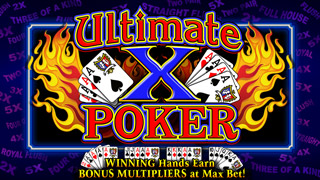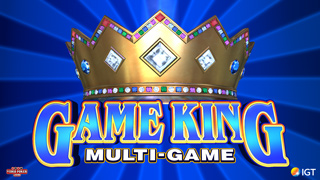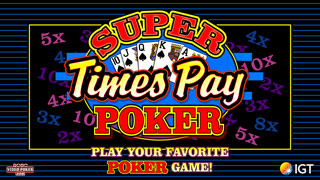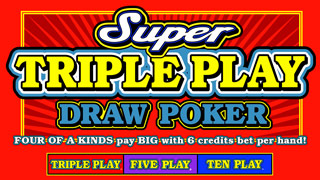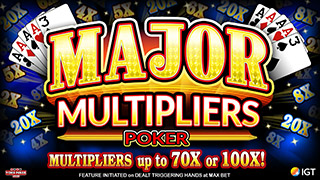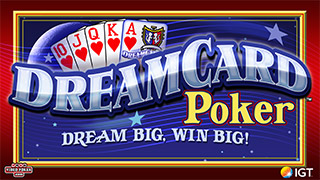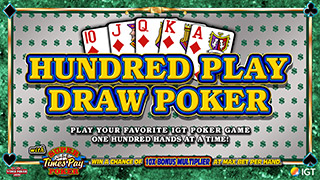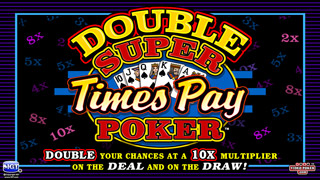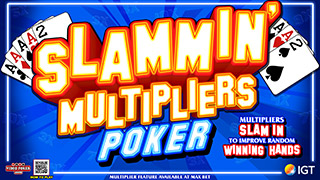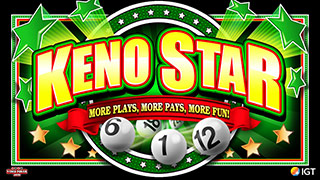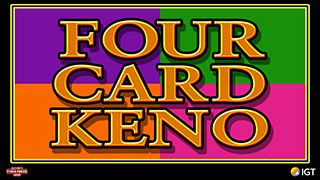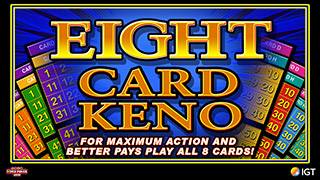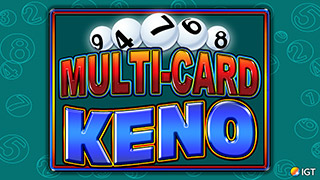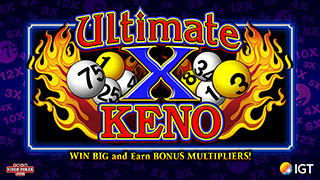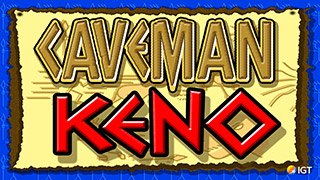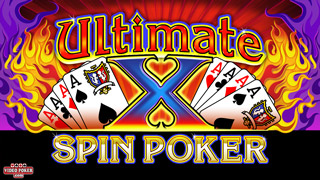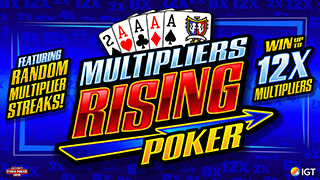random independant events
-
jim18
- Senior Member
- Posts: 118
- Joined Forum: March 4, 2011
- View Player Page
random independant events
Good Evening FrankI was going to post this under Thanksgiving topic, but it has been closed. So, I created this topic, so that those who wish to speak about hot and cold streaks, and the RNG can have a place to do so.Thank you for taking the time to try to explain a mathematical concept to me. I think I understand what you are saying well enough to understand your point of view. And I am certainly willing to agree with you that mathematically, you are correct in what you have said, as far as I know.Let me try to add a few thoughts to what you have said, with the hope that other VP players will see the point I am trying to make, and add their two cents worth to my posting.You have made the suggestion that reading a book, “The Drunkards Walk”, would be a good read for anyone interested. My response to this suggestion is two fold. As a guess, VP players are more concerned with results than they are with the reasons why a certain strategy works well. Additionally, I think that such a book may be written in such a style as to be a turn off to the casual reader, meaning that this book may be too boring to the typical player.However, since you have made the suggestion, maybe others who have read this book can give a summery of how this book would help the VP player without overwhelming them with mathematical concepts.I think I am in agreement with you that the RNG creates independent events, if we define independent to mean that no matter what happened on the last hand, the next draw will be completely a surprise to the player.On the other hand, most people that I know do not approach VP playing with a view of the RNG that you have stated. Mathematically, a series of VP hands should be independent from each other. I get that, I think. However, what many people think, including myself, is that if a machine is to pay back 99 % over a period of time, then it is reasonable to expect that fluctuations much occur which create what I call hot or cold spells. Given a RF on the last hand, the odds of getting a RF on the next hand are still one out of 40,000+. This represents the independent event concept that you spoke of. What is also at play is what I call the likelihood effect. In the likelihood effect, the chances of getting a number of good hands in a row is small, but not impossible. And, if a number of good hands in a row occur, then the likelihood is that the machine must turn cold, so that by the time the machine has ran a full cycle it will have returned only 99 %, not 120 %.Mathematically, you can poke holes in what I have written. I understand this. However, so many people, playing so many forms of gaming in so many casinos have reported what appears to them to be hot and cold cycles that some other explanation needs to be used to explain what is happening.Using Craps as an example, all the players will say that they are in a losing cycle when the table turns cold. It seems to have nothing to do with RNG, or with the skill of the players, or with luck. Then it happens that player after playing makes multiple points and everyone is calling this a hot table. So, how does math explain a series of independent, random events that are mostly positive or negative.This same thing seems to occur in black jack, where the dealer is almost unbeatable, as well as the other games offered by the casino. There are cycles, and there is no RNG to blame or take credit for independent random events.So, when this hot and cold cycle shows itself on a VP machine, do you really think that the players will credit this to the RNG, or will they say that the machine is going through a cycle?“The round holes of their minds.” I sort of like that expression, or at least the image that comes into my mind’s eye. Again, I will agree with you that what happened to me on Monday is completely independent from what happens to me the next time I go to the casino.Still, I feel that math has failed to explain to gamblers in general, how hot and cold spells that occur just hours apart are all a part of randomness. For example, the invisible force, gravity holds earth in an orbit. Now imagine how it would sound if math experts were to say to farmers that the reason their crops grew up (out of the ground) was that gravity was pulling the crops up. While this idea is wrong, it is kind of how I see the explanation of math experts of what causes random events to follow a general trend, when they are not related, and especially when there is no RNG present.Also, I think we can agree that since the average gambler will not likely understand any explanation that you present in a mathematically context, it is better for all of us to focus on how to maximize wins and minimize losses when these random, independent events come at us, in what appears in the short term to be excessive and unlikely. To call them an illusion, does not get the job done.
-
Frank Kneeland
- VP Veteran
- Posts: 762
- Joined Forum: February 2, 2011
- View Player Page
First, "The Drunkard's Walk" is not specifically for gamblers and covers mostly aspects of daily life where people discount randomness. It is humorous and one of the most entertaining books I've ever read and should be good for just about anyone. The author Leonard Mlodinow was Stephen Hawking's co-author on his last two books.On the issue of Independent random events you almost got my point and I'm suitably impressed. Here's an excerpt from my Blackjack News Letter article, "Catching the Tabula Rasa Fairy" that explains it better.EXCERPT FROM FK ARTICLE: Catching the Tabula Rasa Fairy
Here's the problem: Most
wagering in casinos comes in the form of independent random events.
There are some rare exceptions, but for now let's stick to the ones
that are completely random and independent like hands of video poker.
If you focused on the word “random” in that last sentence, your
attention was in the wrong place. Here “independent” was the more
important concept. Hands played in sequence have no more or less in
common, nor are they any more or less related to each other than
hands played years apart or by different people. They are:
“independent” Separate
from; exclusive; irrespective. Not related to, or having any
dependency to other variables or trials.
I'm reminded of the Steven
Wright joke about the guy outside the locked convenience store that
asks a guy inside, “Hay buddy the sign says open 24 hours?” The
guy replies, “Yea, but not in a row!” Independent events are not
related to each other simply because they occur sequentiality. It's
fine to record your day's results for the IRS, as long as you realize
that each and every hand you played was not related to any other
simply because they occurred “in a row”, during an arbitrary
period of time like “today”. It is a convenience, nothing more.
We are so used to linear thinking, we have no way to mentally
quantify randomness and independent events, so we use the same common
methods that work for us in daily life. When our example tourists
says they “won money this trip”, nothing seems amiss until we
realize that they could just have easily told us they won money
during or on any of the following:
Their odd numbered
hands.
Their even numbered
hands.
Hands played with only
one hand. (Left or Right)
Hands played while
sitting. (Cross-legged)
Hands played while
standing (on one leg)
Since their last bowl
movement. (solid)
Only while 80's songs
played on the intercom. (Excluding the Bee Gees)
Since the last time
they cleaned out their belly button lint.
I'm now using #8 for my own
record keeping, but it only works when I've worn my cashmere sweater.
Saying I'm winning “today” or “this trip” sounds a lot
more reasonable than “I'm ahead this belly button fluff”, but the
surprising reality is that it isn't. Any attempt to group and then
sample (taking a potion of a larger whole) independent events,
requires an arbitrary decision as to which ones you will include and
which ones you'll discount. Nothing seems more natural than including
what's happened today in its own personal clean reckoning. The only
logical method of accounting for independent events is not to
discount any of them. You cannot apply any aspect of normal daily
time frames to independent events, without essentially leaving the
window open and a friendly invite for the Tabula Rasa Fairy to visit.END of EXCERPTSo here's the point: in order to perceive that you have had a cold or hot streak, you have to add up the results from hands that occurred in a row, which is not something you're supposed to be doing with independent events, because they are not related to each other--whether they occurred in a row or during periods of blue belly button fluff.A lifetime tally is probably a good idea. Tax records are probably a good idea. Anything else is mental confabulation. Nothing could seem more normal and right than adding up things that happened consecutively, but it is inappropriate where random events are concerned.~FK
-
shadowman
- Video Poker Master
- Posts: 3587
- Joined Forum: October 23, 2006
- View Player Page
VP machines are constantly shuffling the cards (logically). The machine is actually just generating random numbers and ignoring them. Then it gets the next random number and ignores it. The machine keep doing this until the deal key is pressed. What that means is that thousands, if not millions, of possible hands get ignored.
So, in a very real way the idea of sequential hands is even completely bogus. How can a machine be hot or cold when you're only playing one hand out of thousands that could have been played? You could be passing over a possible RF every single hand. If only you'd hit the deal button a fraction of a second slower (or faster).
So, in a very real way the idea of sequential hands is even completely bogus. How can a machine be hot or cold when you're only playing one hand out of thousands that could have been played? You could be passing over a possible RF every single hand. If only you'd hit the deal button a fraction of a second slower (or faster).
-
Frank Kneeland
- VP Veteran
- Posts: 762
- Joined Forum: February 2, 2011
- View Player Page
VP machines are constantly shuffling the cards (logically). The machine is actually just generating random numbers and ignoring them. Then it gets the next random number and ignores it. The machine keep doing this until the deal key is pressed. What that means is that thousands, if not millions, of possible hands get ignored.
So, in a very real way the idea of sequential hands is even completely bogus. How can a machine be hot or cold when you're only playing one hand out of thousands that could have been played? You could be passing over a possible RF every single hand. If only you'd hit the deal button a fraction of a second slower (or faster).I concur!Ah common Shadow tells us how you have done since your last belly button cleaning?
-
jim18
- Senior Member
- Posts: 118
- Joined Forum: March 4, 2011
- View Player Page
FrankI wrote down the title of the book you have recommended. Next time I go to a Half Price Book Store, I will look for it. Why don’t you start a topic on this book on this forum?In my original post, I tried to point out the existence of hot and cold cycles in table games, as well as in VP games. I get the impression that you do not believe in hot and cold cycles, even though they are seem by people all the time. Yes, I understand that each event seems to be independent of each other event. You wish to claim that a collection of independent events has no value. More likely, a collection of independent events indicates a trend. Regardless of whether this is called a series of independent events, a trend, or volatility, I think everyone can at least say that it exists. And experts could tell us what role randomness plays in this series of independent events.My last posting took two hours to create. It is kind of sad that I am so dense that it takes me so long to write a thought out post. On the other hand, I make myself smile by feeling that I have put experts on a pedestal, expected great things from them, saw them fall short, and ended on a happy note, that perhaps I am not the idiot they think me to be.Moving on, for something to really be random, it has to have a huge expanse in time from which the events occur, such as a lifetime of gambling, rather than a year of gambling. This is something that I am sure that you believe in, so you will not find fault with this.However, a VP slot machine has a definite cycle to it. This must be so, in order for it to produce a certain payback percent. As a result, a programer writes a program of one million events, and once those events have played out, the desired payback return will have occurred.If I understand it, this is not called randomness by experts. What we have is the illusion of randomness, with a name to it. This is called pseudorandonmess. According to what I read on wikipedia, pseudorandomness gives the appearance of randomness, yet is not truly random. By this I mean that pseudorandomness is an entirely deterministic casual process.While I have little to no idea of what this means, I will draw my own conclusion, as follows. It would be impossible for a player to play 1 million decisions and have a return of lets say 101 % on a machine that is supposed to return 99.5 %. The program would not allow this to happen. So, how random is VP?
-
Eduardo
- Video Poker Master
- Posts: 2967
- Joined Forum: August 31, 2006
- View Player Page
Turkey, gravy, mashed potatoes... yum.
-
onemoretry
- Video Poker Master
- Posts: 3133
- Joined Forum: March 3, 2009
- View Player Page
It would be impossible for a player to play 1 million decisions and have a return of lets say 101 % on a machine that is supposed to return 99.5 %. The program would not allow this to happen. So, how random is VP?
That's not really so. It would be somewhat unlikely, but not impossible.
The machine is not "programmed " to produce a particular return. Rather, it is programmed to, at each and every opportunity, ensure that each and every card that is eligible to be drawn has an equal chance of being drawn.
The payscale and laws of probabality take care of the rest.
-
brmcc74
- Senior Member
- Posts: 295
- Joined Forum: December 30, 2009
- View Player Page
Its real simple actually. If it is truely random, then to me that means that we do not, can not, never will know what the next hand will be. How do we put a value on something that isnt a guarantee or fact? I guess I fall in between these ideas. I do believe that vp is random. This is why I also believe that anyone can find themselves on the negative expected side of an rng. Is it possible? Ofcourse it is, but certain people will never agree. Nothing new.
-
Frank Kneeland
- VP Veteran
- Posts: 762
- Joined Forum: February 2, 2011
- View Player Page
FrankI wrote down the title of the book you have recommended. Next time I go to a Half Price Book Store, I will look for it. Why don’t you start a topic on this book on this forum?Super book. If you don't like it I'll refund your money. I'm that confident you'll like it.In my original post, I tried to point out the existence of hot and cold cycles in table games, as well as in VP games. I get the impression that you do not believe in hot and cold cycles, even though they are seem by people all the time. Yes, I understand that each event seems to be independent of each other event. Ummm...no that's not quite right. I believe in their existence retroactively. In my book I have a really good example of looking at the past in my subheading entitled, Faces in The Clouds that details what would happen if you looked over the last hundred years of weather data to see if it was hotter or colder on even numbered days. Surprise surprise, you'd find a pattern, and that one or the other was true. Your only mistake was looking in the first place. Patterns will always appear in random events retroactively. The only real issue is they are not predictive even 1 second into the future.It cracks me up that if you walk up to someone in a casino and ask them how they are doing, they will answer, "I'm winning" or "I'm losing". To which I sometimes respond, "didn't you leave out the words, 'Have been'". It is actually impossible to metnion any gambling result in the present or future tense. Yet people experience the past as something that's happening to them right now. It's an almost ubiquitous human cognitive distortion related to time perception.You wish to claim that a collection of independent events has no value. More likely, a collection of independent events indicates a trend. Regardless of whether this is called a series of independent events, a trend, or volatility, I think everyone can at least say that it exists. And experts could tell us what role randomness plays in this series of independent events.Well the experts I've been reading say randomness does have a role in our society, and it's mostly to fool people looking for patterns in things that have none. As far as a collection having no value, I didn't mean to take it to that extreme. You could certainly deduce some useful info from a series of random events by using things like Chi Squared tests and Bayesian Inference. Don't bother trying to do anything in your head, it'll just fool you.My last posting took two hours to create. It is kind of sad that I am so dense that it takes me so long to write a thought out post. On the other hand, I make myself smile by feeling that I have put experts on a pedestal, expected great things from them, saw them fall short, and ended on a happy note, that perhaps I am not the idiot they think me to be.Gosh Jim, don't waste so much time. These only take me about 15 min to bang out. I'd not waste that much time on the Internet.Moving on, for something to really be random, it has to have a huge expanse in time from which the events occur, such as a lifetime of gambling, rather than a year of gambling. This is something that I am sure that you believe in, so you will not find fault with this.Not sure exactly what you meant, so no comment.However, a VP slot machine has a definite cycle to it. This must be so, in order for it to produce a certain payback percent. As a result, a programer writes a program of one million events, and once those events have played out, the desired payback return will have occurred.Strictly speaking that's not how they work. Individual machines do not yield consistent returns for casinos. The randomness means casinos take a gamble to. Machines merely have an expected range of return. Results vary widely. If I understand it, this is not called randomness by experts. What we have is the illusion of randomness, with a name to it. This is called pseudorandonmess. According to what I read on wikipedia, pseudorandomness gives the appearance of randomness, yet is not truly random. By this I mean that pseudorandomness is an entirely deterministic casual process.Oddly you are both correct and incorect. Yes it is pseudo random, but for all intents and purposes it is superior to true randomness which is more of a concept like infinity, that can never be reached. If you wanted random and had your choice you'd take the pseudo version over the real because the real is a fantasy. (Bet I lost you) Pseudo random is equiprobable and unpredictable which is perfect for VP.While I have little to no idea of what this means, I will draw my own conclusion, as follows. It would be impossible for a player to play 1 million decisions and have a return of lets say 101 % on a machine that is supposed to return 99.5 %. The program would not allow this to happen. So, how random is VP?Sure that could happen. Not that hard actually. A deviation of 1% in 1 million hands is just considered 1 standard deviation for most VP games. 1.5% wouldn't be that hard at all. You might expect 3 out of a hundred people to have that result.~FK
-
jim18
- Senior Member
- Posts: 118
- Joined Forum: March 4, 2011
- View Player Page
Turkey, gravy, mashed potatoes..................someone is off topic. The wonderful webman will close this topic, I assume, if this continues.I am confused by the comments that the VP machines are not programmed to produce a specific return - based on perfect play. What does the “micro chip” that is placed in each VP machine do, if not store a program that will produce specific results over a period of hands?pseudorandomness is an entirely deterministic casual process. This is from Wikipedia. What does this mean in plain English?I agree that a hot cycle or a cold cycle is not predictive. But, what no one is responding to is the huge amount of people that can tell you that at the present, and most recent past, they are going through what looks like a cycle. And that these cycles occur with and without a RNG.“It cracks me up that if you walk up to someone in a casino and ask them how they are doing, they will answer, "I'm winning" or "I'm losing". To which I sometimes respond, "didn't you leave out the words, 'Have been'". It is actually impossible to mention any gambling result in the present or future tense. Yet people experience the past as something that's happening to them right now. It's an almost ubiquitous human cognitive distortion related to time perception.” I AM SURE THAT SOME PEOPLE SEE THIS AS A FACT. I AM NOT ONE OF THOSE PEOPLE. WHAT YOU ARE DOING IS TEARING APART A PERSON’S USE OF PRESENT TENSE OR PAST TENSE. FOCUS ON THE CYCLE, NOT THE INCORRECT TENSE, PLEASE.I think I can understand how pseudo randomness is preferred to true randomness by the VP player as well as the casinos. In true randomness, the casinos could lose lots of money over a short period of time, depending on the random results.A deviation of 1 sounds reasonable to me. If fact, I think a larger deviation would be reasonable, at certain points in a cycle. I would call this volatility. However, where I am having trouble accepting words as facts is that when the manufacture of a machine installs a chip at the factory, that chip is supposed to return a predetermined percent to the player, over the entire life of a cycle. If it returns a higher or lower amount, than the agreed upon amount, then I would call this deceptive. Unfair to the casino, or unfair to the players.In other topics, there is a big deal made of a machine returning 9/6 vs 9/5. This is a 1 percent difference, roughly. So, it seems likely that it would be a big deal if the program of a machine were to return 1, 2, or 3 percent more / less than what the pay chart promised over the lifetime of the program’s cycle. Why do you think this is not a big deal?



